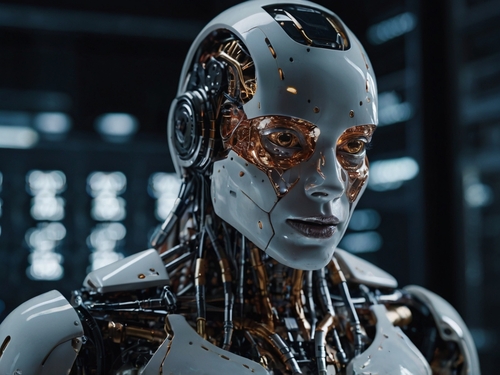The Russia AI market is set to experience dynamic growth by 2031, driven by a convergence of technological advancements and strategic initiatives across various industries. As Russia accelerates its adoption of artificial intelligence (AI), several key trends are expected to shape the development of the market, influencing sectors such as healthcare, defense, energy, and more.

Expansion of AI in Healthcare
One of the most promising trends in the Russia AI market is the integration of AI technologies into healthcare. AI is playing a crucial role in diagnostics, drug discovery, and patient care. Machine learning algorithms and data analytics are being used to develop more accurate diagnostic tools, identify potential treatment plans, and personalize medical care. In particular, AI’s application in radiology, genomics, and telemedicine has seen considerable growth in Russia, especially in rural regions where access to healthcare is limited.
Furthermore, AI-powered tools are streamlining administrative tasks, improving operational efficiency in hospitals, and reducing wait times for patients. As these technologies become more widespread, they have the potential to transform Russia’s healthcare system by enhancing the quality and accessibility of services.
Growth in AI-driven Automation
Automation is another key trend in the Russia AI market. Manufacturing and logistics are at the forefront of adopting AI-driven automation to optimize production processes, manage supply chains, and reduce operational costs. The use of robotics, AI-powered machines, and smart manufacturing systems is helping industries improve productivity and remain competitive in the global market.
This trend is especially significant in sectors like energy and mining, where predictive maintenance powered by AI can help minimize downtime and increase the efficiency of equipment. As these industries are central to Russia’s economy, the adoption of AI technologies is likely to lead to cost savings and improved resource management.
AI in Defense and Security
Russia’s defense sector is heavily investing in AI to develop advanced military applications. AI technologies are being used in autonomous systems, cybersecurity, and predictive analytics to strengthen national security. Russia’s defense strategy is focusing on the development of unmanned aerial vehicles (UAVs), autonomous combat systems, and AI-enhanced surveillance tools.
Additionally, AI is being deployed to counter cyber threats, which have become more sophisticated in recent years. By leveraging machine learning and deep learning techniques, Russian defense agencies are improving their ability to detect, analyze, and respond to cyberattacks more quickly and efficiently.
AI-Powered Smart Cities
Russia’s growing interest in smart city development is another notable trend in its AI market. AI is enabling cities to adopt smarter infrastructure, enhance public services, and improve overall urban living standards. AI technologies are being used for traffic management, energy optimization, and public safety monitoring.
Smart transportation systems, including AI-driven traffic control and autonomous public transport, are being tested in various Russian cities. These innovations are designed to reduce congestion, cut emissions, and improve transportation efficiency. AI’s role in optimizing energy use in buildings and public spaces is also critical as cities aim to reduce their environmental footprint.
Challenges and Opportunities Ahead
While the Russia AI market is positioned for significant growth, several challenges remain. One of the key obstacles is the shortage of skilled professionals in AI and machine learning. Although Russia has a strong educational system in STEM (science, technology, engineering, and mathematics), the demand for AI experts is outpacing supply. Efforts to close this gap through educational reforms and international collaborations are critical for the continued success of AI initiatives in the country.
Additionally, the geopolitical landscape presents its own set of challenges. Sanctions and international tensions have limited Russia’s ability to access certain advanced AI technologies and collaborate with Western companies. However, Russia has responded by fostering domestic innovation and forging partnerships with non-Western countries to mitigate the impact of these restrictions.
Conclusion
The trends driving the Russia AI market are diverse and promising, reflecting the growing importance of artificial intelligence across multiple sectors. As the country continues to invest in AI technologies, advancements in healthcare, defense, smart cities, and industrial automation are expected to play pivotal roles in its economic development by 2031. Despite challenges, Russia’s commitment to AI innovation positions it as a key player in the global AI landscape.
No responses yet